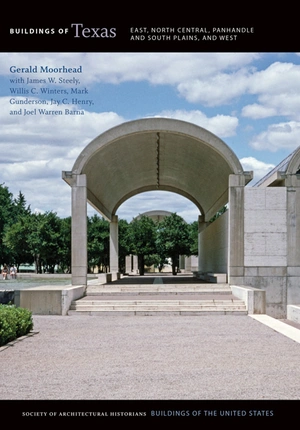
James Knox Taylor’s tenure as Supervising Architect is notable for the many highly refined federal buildings inserted into Texas towns, often the most elegant and finely detailed civic structures a community possessed. A favored style was early Italian Renaissance, often based on the Foundling Hospital (1419) in Florence by Filippo Brunelleschi. As interpreted in Hillsboro, the hospital’s delicate signature arcade of columns supporting round arches without an entablature is given more weight by splitting each stone column and inserting a stone pier. Colored terra-cotta roundels based on the work of fifteenth-century Florentine sculptor Luca della Robbia float between the arches as at the Foundling Hospital. The unusual terra-cotta entablature achieves bold sculptural depth with shields framed by corbels and a projecting cornice above. The two-story side walls of the buff brick building feature lively Venetian Gothic pointed arches embracing a pair of arched windows. A red barrel tile hipped roof reinforces the crisp, compact form of the building. The post office was acquired by the city in 1968 and opened as the Hillsboro City Library in 1971 after interior remodeling.














